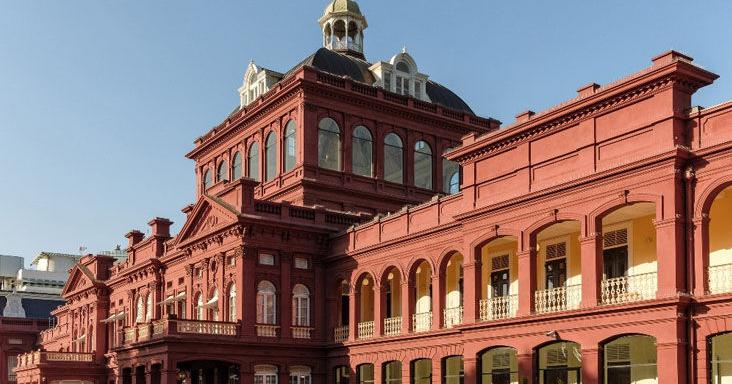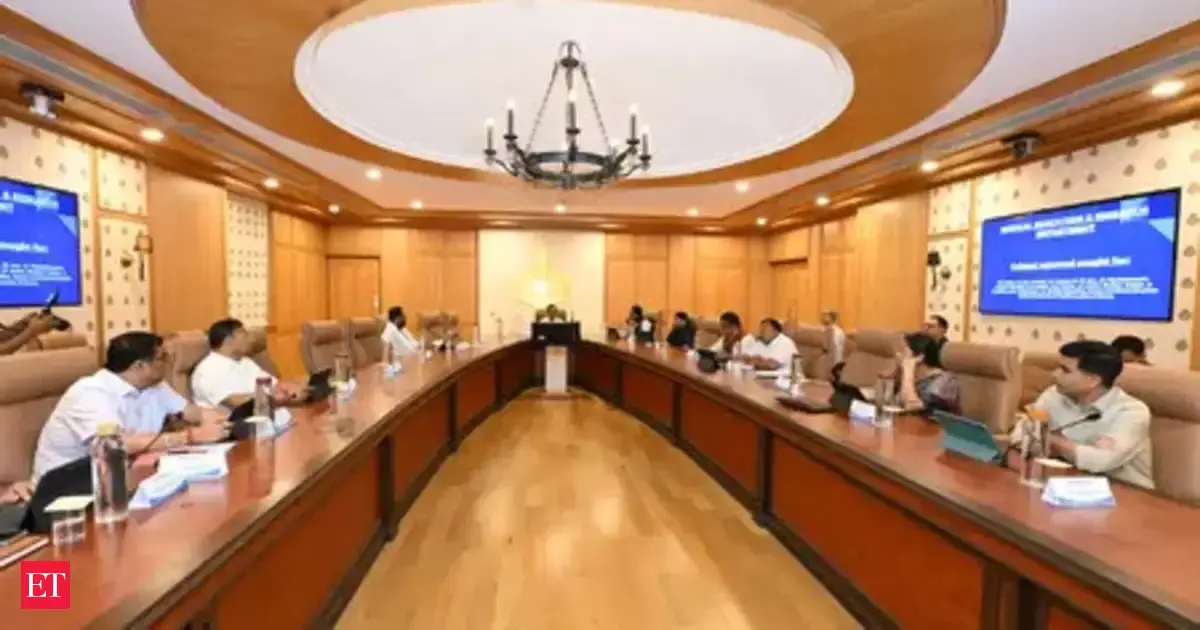By Verdel Bishop
Copyright trinidadexpress

TWO of the country’s major business chambers are concerned that the country can no longer afford to delay decisive reforms as Government prepares to deliver the 2025–2026 national budget.
Both the Trinidad and Tobago Chamber of Industry and Commerce (TTCIC) and the American Chamber of Commerce of Trinidad and Tobago (AMCHAM T&T) have described T&T as being at a critical crossroads, and have called for a clear path toward sustainable growth.
The chambers said unless urgent reforms are implemented, the country risks slipping further behind in an increasingly competitive global economy.
In their budget suggestions for 2025-2026, the chambers outlined similar recommendations, including greater investment in youth development, accelerated digital transformation, diversification beyond energy, and measures to improve the ease of doing business.
They agreed that unless T&T takes urgent steps to strengthen its competitiveness and attract new investment, it risks falling further behind in a rapidly changing global economy.
Fight crime better with
judicial, police reforms
Both chambers identified crime as a major obstacle to business confidence and progress. AMCHAM T&T described it as the number one concern for its members, calling for a holistic approach that strengthens community policing, expands youth programmes and restores trust in law enforcement. The chamber, which represents over 300 companies, said it would cooperate with the Government on practical solutions to promote economic sustainability, public-private collaboration, and social progress.
The chamber said its 2025 recommendations were based on ongoing efforts and new insights from its annual Budget Survey, reflecting direct business feedback, a review of ongoing macroeconomic conditions, and input from its committees.
“We commend the Government on progress made thus far and offer these recommendations to support sustainable economic growth, investment attraction, and business resilience across all sectors. We are confident that with the right policy measures, Trinidad and Tobago can position itself as a competitive, safe and future-ready destination for business and investment,” the chamber said.
It suggested priority policy areas for FY 2025-2026 should be: crime and security, foreign exchange access, customs and trade facilitation, ease of doing business, tax administration and VAT refunds, digital transformation and innovation, judicial reform and white-collar crime, skills and workforce gaps, and the green economy and ESG.
The chamber noted: “…crime is the number one concern among our members, seen not only as a public safety issue, but as a major deterrent to investment, expansion and talent retention.”
To rebuild trust, deter investment flight, and reduce business costs, the chamber recommended strengthening the judiciary to better manage crime and improve the business environment; and improving the Police Service. It said:
“A high and seemingly uncontrollable crime rate is a major deterrent to foreign direct investment and business in general. Trinidad and Tobago’s main drawback is not the lack of legislation, but the inefficiency of the enforcement system and the Judiciary. Strengthening these institutions, together with the rehabilitation of convicts, will go a long way in addressing crime.”
Boost non-energy sector
Meanwhile, the TTCIC said there was need for strategic budgetary interventions to enhance sustainability, boost non-energy sector performance, and maintain macroeconomic stability. “Trinidad and Tobago is a small, open economy located in the Caribbean with its economic performance closely tied to developments in the global energy market,” it noted.
It said that as of 2023, the country recorded a real GDP per capita of US$16,179 (constant 2015). It further stated that the energy sector contributed 32.5% to Trinidad and Tobago’s real GDP, while accounting for 75.7% of total exports.
In contrast, it said the non-energy sector, which contributed 67.5% to GDP, continued to be the main source of employment and domestic economic activity, but it lagged significantly in export performance.
“While the energy sector continues to underpin national income and government revenue, the non-energy sector, comprising manufacturing, services, tourism and agriculture, continues to play a critical role in economic diversification, employment generation and long term resilience. These dynamics underscore the need for strategic budgetary interventions aimed at enhancing sustainability, boosting non-energy sector performance and maintaining macroeconomic stability,” the TTCIC said.
Digitise Customs
Under the theme Government Efficiency, among TTCIC’s recommendations are to modernise customs processing:
“Implement a fully digitised and risk-based Customs Management Systems integrated with other border agencies. This system should include pre-clearance for low-risk containers, automation of inspections, and the adoption of performance-based KPIs to drive accountability and service delivery,” it said.
Adopt clear forex policy
To resolve foreign exchange access challenges, its recommendations include adoption of a clear and transparent foreign exchange allocation policy accessible to all businesses, and expansion of the Exim Bank facility to cover a broader range of non-energy sectors.
Expand tax incentives
for youth jobs
Focusing on youth development, the TTCIC called for an expansion of tax incentives for youth employment. It said:
“While some fiscal incentives exist to promote youth development in the technology sector, other trades that absorb large numbers of vulnerable youth, such as construction, services and manufacturing, do not benefit from similar support. This creates uneven access to employment incentives and limits broader youth inclusion.”
It recommended extending existing tax allowances for youth employment in the technology industry (150% of expenses up to $3 million) to other trades or sectors such as construction, which, it said, employed “many vulnerable youths” and wehich played “a key role in national development.”
Healthcare reform
The TTCIC also called for healthcare reform through diversifying non-communicable diseases (NCD) treatment procurement.
It described the current tendering process for treating of NCDs in our public healthcare system as “overly restrictive,”, explaining:
“It does not adequately accommodate the inclusion of novel, evidence-based therapies that are now globally recognised for improving patient outcomes. As a result, patients reliant on the public sector are often limited to outdated or less effective treatment options.
“This limitation not only contributes to poorer health outcomes and reduced quality of life, but also increases long-term healthcare costs and diminishes national productivity due to preventable illness, disability or premature death.”
It recommended the diversification of the public procurement process for NCD treatments to include innovative, clinically proven, and cost-effective therapies.
Tax breaks for
funding police
The TTCIC recommendations for crime and civil justice reform include the introduction of a targeted fiscal incentive in the form of a tax deduction of 100% of the actual expenditure incurred by individuals and companies that contribute financially to the TTPS for operational or infrastructure-related support.
It said the allowable deduction should be capped at $1 million per donor, applicable for income years 2026-2028. “This measure would encourage corporate social responsibility, mobilise additional resources for the TTPS and promote stronger collaboration between the private sector and national security stakeholders,” the TTCIC said.
Fyzabad Chamber
Fyzabad Chamber of Commerce president Angie Jairam said the chamber’s budget recommendations include proposals to strengthen the local business environment, support job creation, and stabilise the national economy through structured foreign exchange generation.
“The upcoming budget is a critical opportunity to create meaningful relief and support for businesses, especially MSMEs that continue to navigate inflationary pressures and limited financing”, Jairam stated, adding:
“We are also calling for a bold strategy to increase the country’s foreign exchange earnings—it’s essential for long-term economic resilience”. Recommendations include strengthening support for export-ready businesses, encouraging value-added production, and promoting investment in export-driven sectors such as agro-processing, tourism, and digital services.
The chamber also suggested leveraging diaspora trade and investment channels, and simplifying Customs and trade facilitation systems.
“We must take a structured, sector-focused approach to earning foreign exchange. Whether through manufacturing, services, or diaspora engagement, we have untapped potential that needs coordinated policy support,” Jairam said.
Top 5 budget recommendations
from the Fyzabad Chamber:
1. Affordable financing for MSMEs
Expand government-backed loan schemes and offer low-interest financing to micro, small, and medium enterprises, with specific support for youth- and women-led businesses.
2. Strategic tax incentives
Introduce targeted tax relief for R&D, reinvestment, and sustainable business upgrades to encourage expansion and innovation.
3. Infrastructure development
Invest in roadworks, port upgrades, industrial zones, and broadband infrastructure to improve logistics, trade efficiency, and rural economic inclusion.
4. Develop workforce skills
Partner with industry on vocational training and digital upskilling programmes to meet current/future market needs.
5. E-Govt services
Streamline business registration, licensing, and compliance through integrated digital platforms, reducing red tape and improving service delivery.



